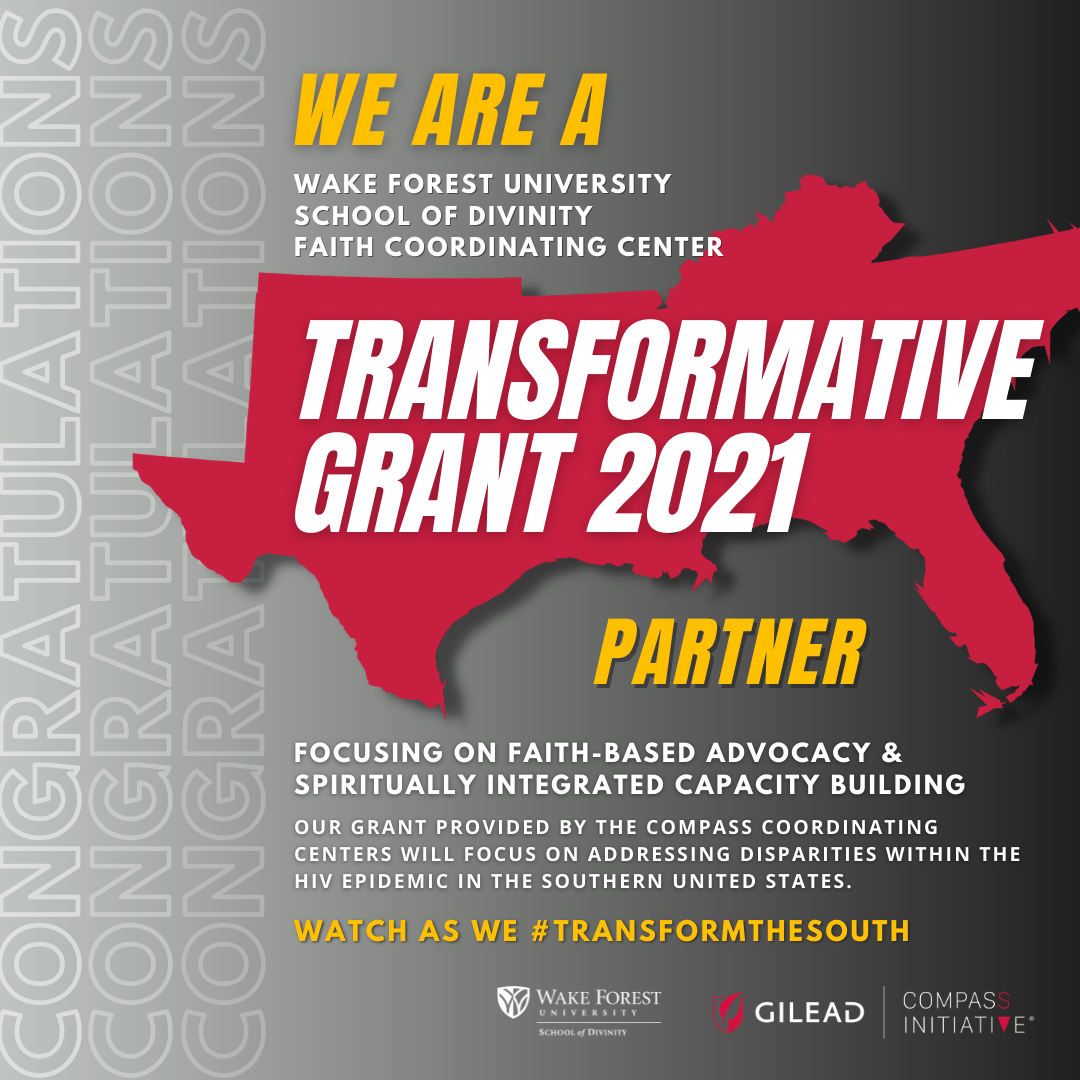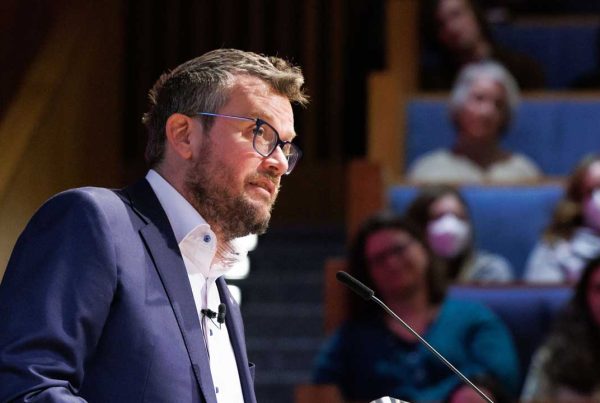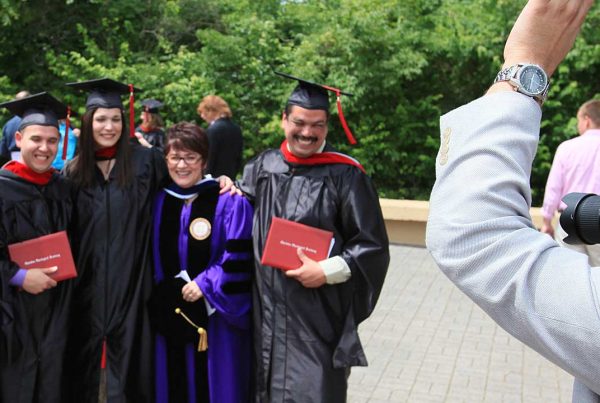Christian Theological Seminary (CTS) has been selected as a Transformation Grant recipient in a new phase of funding from the Gilead COMPASS Initiative®. The $100,000 grant will support the Mixed Methods Preaching Conference, presented by the Seminary’s PhD in African American Preaching and Sacred Rhetoric program. Planned for Spring 2022, the conference will address how densely-layered topics – such as HIV-AIDS – can be understood through preaching and scholarship integrating narrative, traditions of hospitality and community connectivity.
 Just as Black and Brown people have suffered disproportionately from COVID-19, these communities have also experienced a greater level of affliction and mortality from HIV/AIDS. The stigma associated with HIV/AIDS extends beyond the public health crisis posed, facilitating misinformation, contributing to social injustice, and escalating inequities for people and communities of color.
Just as Black and Brown people have suffered disproportionately from COVID-19, these communities have also experienced a greater level of affliction and mortality from HIV/AIDS. The stigma associated with HIV/AIDS extends beyond the public health crisis posed, facilitating misinformation, contributing to social injustice, and escalating inequities for people and communities of color.
CTS is among a network of non-traditional partners selected to address HIV/AIDS disinformation and stigma in congregations and in communities. “A key objective of the Mixed Methods Conference is to preserve the preaching narrative and apply it to critical conversations taking place at the intersection of faith, scholarship, justice and equity,” says Aimee Laramore, philanthropy strategist at CTS. “This grant will help students, congregations and communities, to move the conversation from theory to practical application of methods that can help heal healthcare injustices.” Laramore noted that Black and Brown communities have a strong tradition of relying on faith and connection and that preaching can be a tool for breaking down stigmas and advancing equity in public health. The conference will explore how traditions of inclusivity and hospitality can be embraced as part of a holistic approach to addressing disparities among people living with HIV/AIDS.
A trend toward increased diversity in seminaries’ student bodies complements other demographic shifts projected to emerge through 2040. Dr. Frank A. Thomas, PhD Program Director and visionary behind the Mixed Methods Preaching Conference at CTS, notes that seminary leaders share a responsibility to reimagine and build environments that reflect a more diverse and complex cultural environment. “Effective responses to meet the emerging needs of seminary students and local faith communities demands a radical reassessment and prioritizing of community needs,” he says. Inspired by the inaugural Mixed Methods Preaching Conference in 2019, the expanded conference builds upon a tested methodology to train and equip teachers and pastors. Reflecting on the public health element that is central to the expanded program, Dr. Thomas says, “Fundamental to this training is integration of ‘The Experience,’ an intensive community building program to elevate, cultivate and critique sermon preparation that reduces stigma and increases HIV/AIDS education.”
Following its launch, The Experience will serve as an ongoing community building initiative designed to continue critical conversations, increase education, facilitate evaluation in faith communities, and focus on the role of faith communities in HIV/AIDS education. The community-model leverages the Mixed Methods Preaching Conference movement and institutionalizes its efforts for impact far beyond the confines of the seminar environment.
The Gilead COMPASS Initiative® is a collaboration between Emory University Rollins School of Public Health, Southern AIDS Coalition, University of Houston Graduate College of Social Work, and Wake Forest University School of Divinity, and is engaging non-traditional partners to address the stigma of HIV/AIDS and advance efforts to advance inclusivity and equity for Black and Brown populations. Remarking on the new phase of funding, Kia Colbert, Director of the COMPASS Program at Emory University Rollins School of Public Health stated, “We are proud to kick off our 2021 grantee partnership to support organization as they empower new leaders, reach members of their communities, and improve their capacity to care for people living with or affected by HIV.”
For more information on the Gilead COMPASS Initiative and its grantees, visit www.gileadcompass.com.





